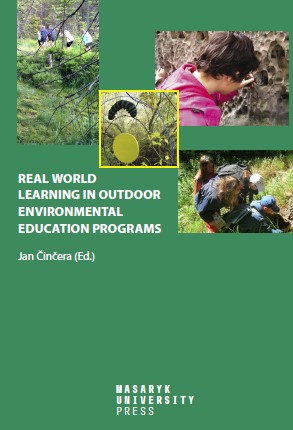EXPERIENTIAL LEARNING IN OUTDOOR ENVIRONMENTAL EDUCATION PROGRAMS: A SOURCE OF LEARNING AND CONFUSION
EXPERIENTIAL LEARNING IN OUTDOOR ENVIRONMENTAL EDUCATION PROGRAMS: A SOURCE OF LEARNING AND CONFUSION
Author(s): Jan Činčera, Roman Kroufek, Bruce Johnson
Subject(s): Environmental Geography, Applied Geography, School education, Pedagogy
Published by: Masarykova univerzita nakladatelství
Keywords: experimental learning; Outdoor environmental education; leadership;
Summary/Abstract: This chapter focuses on program leaders’ personal theories of experiential learning. While the program leaders in our study all agree that outdoor environmental education programs should be experiential, the individual leaders’ personal theories of what and how students should learn by experience vary considerably. In this chapter, we identify three distinctive types of leaders’ personal theories and show that each type provides different answers for program design and implementation. We also analyze these personal theories’ weak points, their deviations from research-supported educational theories, and their other inconsistencies. Finally, we discuss the potential relationships between program leaders’ personal theories and the other crucial decisions regarding program design that were covered in the previous chapters.
- Page Range: 91-106
- Page Count: 16
- Publication Year: 2021
- Language: English
- Content File-PDF

